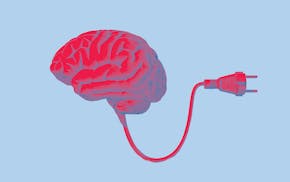Last week's Cleveland katzenjammer didn't shed all that much light on the presidential race. Steadfast Donald Trump supporters, still believing as many as sixty impossible things before breakfast, remain focused on how unfairly their man is received. Won't anyone let him speak?
The news Friday of Trump's positive test for COVID-19 changes the campaign dynamic in ways unknown, but Democratic challenger Joe Biden clearly benefited Tuesday from the first general election debate. Nonetheless, there were a few moments that revealed potential vulnerabilities. Not about his doping to enhance alertness or use of a hidden communication feed for answers, both of which Trump alleged and for which there is no evidence. Nor about his purportedly clever comeback, in correct colloquial Arabic, after Trump promised yet again to one day release his tax returns.
("When? Inshallah?" the former vice president, a man not known for always speaking as intended, appeared to reply. The phrase, typically an earnest "God willing," can also sarcastically indicate skepticism. Not something I knew before Tuesday, but I like knowing it now. For the record, transcripts of the debate did not include the term.)
No, the moments I refer to — one nonanswer and one Freudian slip — have to do with how Biden might manage the balance of power in his own party.
The nonanswer
Here's an exchange about the future of the U.S. Supreme Court, under the assumption that the Senate will confirm Trump's nominee Amy Coney Barrett to replace the late Justice Ruth Bader Ginsburg, giving the court a 6-3 conservative majority.
Debate moderator Chris Wallace: "[T]here has been talk about ending the filibuster, or even packing the court, adding to the nine justices there. You call this a distraction by the president, but in fact it wasn't brought up by the president, it was brought up by some of your Democratic colleagues in Congress. So my question to you, as you have refused in the past to talk about it: Are you willing to tell the American people tonight whether or not you will support either ending the filibuster or packing the court?"
Biden: "Whatever position I take on that, that'll become the issue — the issue is, the American people should speak. You should go out and vote. … I'm not going to answer the question."
He won't answer the question because adding justices is getting serious consideration among members of his party, given the court's turns, fateful and otherwise. He may or may not concur. Yet he knows that anything smacking of a power grab is a liability for candidates not named Trump.
The size of the Supreme Court is not specified by the Constitution but set by Congress. Early in the nation's history, there were anywhere from five to 10 justices. It's been nine since 1869. Changing that to suit ideological goals would lead to a vicious circle — the same one we now see in the confirmation process — whereby the party holding the White House and Senate would, with necessary adjustments, control the court.
But — just a thought — maybe the judicial workload is expanding in an ever more populous country? Might that warrant a higher number of justices?
No such luck. In the 1970s and '80s, the Supreme Court granted more than 150 petitions a year. More recently, it's averaged around 80.
The Freudian slip
Biden: "The Green New Deal will pay for itself as we move forward. …"
Wallace: "Do you support the Green New Deal?"
Biden: "Pardon me?"
Wallace: "Do you support the Green New Deal?"
Biden: "No, I don't support the Green New Deal."
In 2016, the perceived uncertainty about Democratic candidate Hillary Clinton was her trustworthiness. In 2020, the perceived uncertainty about Biden is his ability to hold back the horses of his party's progressive wing.
In a nationwide poll by the Washington Post and the Kaiser Family Foundation in 2019, most respondents liked the goals of the Green New Deal, an ambitious outline from progressives that encompasses health care, economic security and clean energy. Yet when told the plan would increase spending by trillions of dollars, their overall support fell to 30%. They were yet to be persuaded about the "paying for itself" part. Would that change now that federal debt is projected to exceed the size of the economy in 2021?
During the debate, Biden — who won the nomination as a moderate — took pains to announce that "I am the Democratic Party right now. The platform of the Democratic Party … is what I, in fact, approved of." But between this year's primary and general election campaigns, he updated his plans to incorporate many of the Green New Deal's climate and infrastructure objectives. He now seeks $2 trillion in spending over four years.
In a Star Tribune/MPR News/KARE 11 Minnesota Poll last month, Biden's lead among respondents identifying as politically independent was negligible — 44 to 41%. Among all respondents in that poll, climate change was listed as the most influential election issue by 8%, seventh on the list of topics. (This, of course, is of the moment, following several months of social and economic upheaval. It's easy to find earlier polls in which climate change topped other issues.)
Biden appears to have a comfortable lead overall, in Minnesota and nationally, but so did Hillary Clinton at this point in 2016. On Oct. 26 of that year, an Associated Press-GfK poll found her leading Trump by 14 percentage points nationally. On Oct. 28, FBI Director James Comey told members of Congress that his agency was reviewing new e-mails related to Clinton's time as secretary of state. With the key question about her acceptability appearing to have been renewed, her advantage deteriorated, and she lost the states that mattered most.
David Banks is at David.Banks@startribune.com.

Rash: Tariffs and reckless rhetoric repel international tourists from U.S. travel
Counterpoint: Sale of Allete/Minnesota Power is in the public interest
Readers Write: Ukraine "peace plan," trans rights

